Counseling Support

Can counseling help women overcome postpartum depression ?
Postpartum depression is a serious mental health condition that affects new mothers after childbirth. Symptoms include sadness, anxiety, and exhaustion, making it difficult for women to care for their babies or themselves. Counseling has been shown to be an effective treatment option for PPD. It provides a safe space to express emotions, identifies triggers, builds coping skills, enhances self-care, improves relationships, and supports medication management. If you or someone you know is experiencing symptoms of postpartum depression, consider seeking professional counseling to get the support and guidance needed to overcome this challenging condition.

How can counseling help women dealing with infertility-related stress ?
Counseling is crucial for women dealing with infertility-related stress. It helps identify emotional distress, address mental health concerns, build resilience and coping strategies, navigate medical treatment options, and foster hope and healing. By providing emotional support and promoting self-care practices, counseling empowers women to face the challenges of infertility with strength and courage.

What is sport psychology counseling ?
Sport psychology counseling, a specialized area ofSport psychology counseling, a specialized area of mental and emotional aspects of athletic a specialized area of psychology, focuses on the mental and emotional aspects of athletic performance. It involves working with athletes and coaches to improve mental skills, enhance performance, and manage stress related to sports. Key areas include mental skills training, performance enhancement, stress management, team building, injury rehabilitation, and career transition. Benefits include improved performance, increased confidence, reduced anxiety, better teamwork, effective coping mechanisms, and personal growth. Sport psychology counseling is crucial for enhancing an athlete's mental well-being and physical performance.

How does sport psychology counseling differ from traditional counseling ?
Sport psychology counseling and traditional counseling are two distinct fields that share some similarities but also have key differences. The primary focus of sport psychology counseling is on helping athletes improve their performance by addressing mental and emotional factors that affect their sports performance, while traditional counseling focuses on helping individuals deal with a wide range of personal and emotional issues. The approach used in sport psychology counseling includes techniques such as goal setting, visualization, relaxation techniques, and cognitive restructuring, while traditional counseling uses a variety of therapeutic approaches to help individuals deal with their emotional and psychological issues. The primary goal of sport psychology counseling is to help athletes improve their performance by addressing mental and emotional factors that affect their sports performance, while the primary goal of traditional counseling is to help individuals improve their overall well-being by addressing a wide range of personal and emotional issues. Sport psychology counseling is typically sought by athletes who want to improve their performance or overcome obstacles that are hindering their success, while traditional counseling is sought by individuals who are dealing with a wide range of personal and emotional issues.
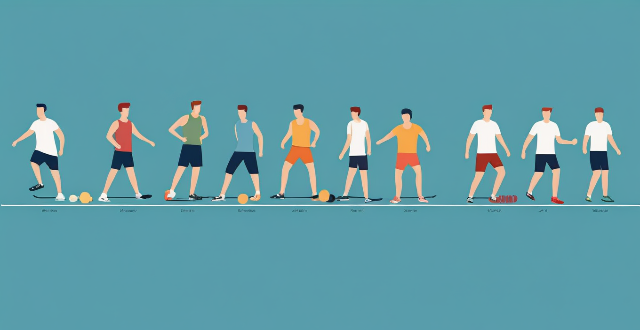
How long does it typically take to see results from sport psychology counseling ?
Sport psychology counseling aims to improve athletic performance and mental skills. The timeline for seeing results varies based on factors like individual differences, goal specificity, commitment level, and support systems. Short-term results include increased awareness and improved focus within 1-3 months, mid-term results such as enhanced confidence and performance within 3-6 months, and long-term results like sustained success and deepened self-understanding after 6+ months of consistent counseling. Working with a qualified sport psychology professional and maintaining commitment can maximize potential for success in sports and life.

Are there any risks or drawbacks associated with sport psychology counseling ?
Sport psychology counseling is a specialized form of psychological intervention that aims to enhance athletic performance, improve mental toughness, and foster personal growth in athletes. While the benefits of sport psychology counseling are well-documented, it is essential to consider any potential risks or drawbacks associated with this type of intervention. The risks and drawbacks include: - Lack of qualified professionals - Overreliance on counseling - Inappropriate interventions - Ethical considerations - Financial costs - Cultural differences To mitigate these risks, athletes should seek out qualified professionals with appropriate certifications and experience in sport psychology counseling, communicate openly with their counselor about their goals and concerns, choose counselors who prioritize ethical practices, explore options such as group sessions, online counseling, or sliding scale fees to reduce costs, and counselors should strive to understand and respect the cultural backgrounds of their clients and adapt their approaches accordingly. By addressing these issues proactively, athletes can maximize the benefits of sport psychology counseling while minimizing any potential negative effects.

How can sport psychology counseling help with mental health issues such as anxiety and depression in athletes ?
Sport psychology counseling is a valuable resource for athletes dealing with mental health issues such as anxiety and depression. It involves understanding the problem, setting goals, managing stress, building confidence, developing emotional intelligence, and fostering social support. Tailored approaches, consistency, and patience are key to achieving long-term success in improving both mental well-being and performance.
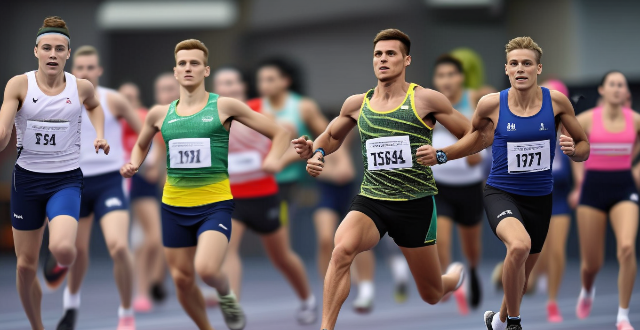
What are the benefits of seeking sport psychology counseling for athletes ?
Sport psychology counseling provides athletes with numerous benefits, including improved performance, stress management, mental toughness, enhanced team dynamics, and personal growth. Athletes can develop better focus, confidence, and goal-setting abilities, learn to manage anxiety and pressure, cope with adversity, and improve communication and leadership skills within their teams. Additionally, sport psychology counseling promotes self-awareness, life skills, and balance in an athlete's life. Seeking the help of a sport psychology professional can significantly contribute to an athlete's overall well-being and success in their sport.

How can schools support the holistic development of teenagers ?
Schools play a crucial role in the holistic development of teenagers by providing various support systems. Here is a breakdown of how schools can support the overall growth of young individuals: ### **Academic Excellence** - **Curriculum Design**: Offer a diverse range of subjects to cater to different interests and aptitudes. - **Extracurricular Activities**: Encourage participation in sports, arts, music, etc., to promote physical health and creativity. - **Mentorship Programs**: Pair students with mentors for academic and personal guidance. - **Study Skills Workshops**: Conduct workshops on time management, note-taking, and test preparation. ### **Emotional Well-being** - **Counseling Services**: Provide mental health support and address personal issues. - **Stress Management Classes**: Teach techniques like meditation, yoga, or mindfulness. - **Social Emotional Learning (SEL) Programs**: Integrate SEL into the curriculum to develop emotional intelligence. - **Peer Support Groups**: Create safe spaces for sharing experiences and mutual support. ### **Character Building** - **Moral Education**: Incorporate values like integrity, respect, and responsibility into school culture. - **Community Service Projects**: Foster empathy and social responsibility through volunteering. - **Leadership Opportunities**: Allow students to take on leadership roles within the school community. - **Cultural Exchange Programs**: Promote diversity through cultural exchange programs or international trips. ### **Career Planning** - **Career Counseling**: Offer guidance based on individual strengths and interests. - **Internships & Apprenticeships**: Partner with local businesses for hands-on experience. - **College & University Fairs**: Host fairs for interaction with higher education representatives. - **Entrepreneurship Clubs**: Support entrepreneurial endeavors through clubs or classes focused on business skills. ### **Health & Physical Well-being** - **Physical Education**: Ensure regular PE classes to promote fitness. - **Health Education**: Teach about nutrition, substance abuse prevention, and wellness. - **Sports Teams**: Organize competitive and recreational sports teams. - **Health Services**: Have nurses or health professionals available for medical advice and first aid. ### **Technology & Innovation** - **Computer Literacy Courses**: Teach basic computer skills and programming concepts. - **STEM Clubs**: Foster interest in STEM through extracurricular clubs. - **Digital Citizenship**: Educate about responsible internet use and digital ethics. - **Innovation Labs**: Establish spaces for creative projects and research using modern technology. ### **Environmental Stewardship** - **Sustainability Initiatives**: Implement recycling programs and energy-saving measures. - **Green Clubs**: Form environmental clubs focusing on conservation efforts. - **Field Trips**: Visit national parks, nature reserves, or sustainability centers. - **Service Learning Projects**: Connect classroom learning with real-world environmental issues. By adopting these strategies, schools create an environment that nurtures the intellectual, emotional, moral, physical, and creative aspects of teenagers' lives, preparing them for success in all facets of adulthood.

How can counseling help women cope with body image issues ?
Counseling can help women cope with body image issues by identifying the root cause, challenging negative thoughts, developing healthy coping mechanisms, building self-esteem, addressing mental health concerns, and providing ongoing support.

How do climate disasters affect the psychological resilience of affected populations, and what support systems can be put in place ?
Climate disasters, such as hurricanes, floods, wildfires, and droughts, can have a profound impact on the psychological resilience of affected populations. Psychological resilience refers to the ability to cope with adversity, adapt to change, and bounce back from difficult situations. When faced with climate disasters, individuals and communities may experience stress, anxiety, depression, and post-traumatic stress disorder (PTSD). Effects of Climate Disasters on Psychological Resilience: - Loss of Property and Livelihoods: Climate disasters often result in the loss of homes, businesses, and livelihoods. This can lead to financial instability, which is a significant source of stress and anxiety for many people. - Displacement and Uprooting: In severe cases, climate disasters can force people to relocate or evacuate their homes temporarily or permanently. This displacement can disrupt social networks and support systems, leading to feelings of isolation and despair. - Trauma and Grief: Witnessing or experiencing injury, loss of life, or damage to property can cause traumatic reactions. Grief over lost loved ones or familiar surroundings can also affect mental health. - Uncertainty and Fear: The unpredictable nature of climate disasters can create ongoing uncertainty about future events, leading to chronic stress and fear about potential threats. - Health Concerns: Exposure to extreme weather conditions or contaminated water sources can raise concerns about physical health, adding another layer of stress. Support Systems for Enhancing Psychological Resilience: To help affected populations cope with the psychological impacts of climate disasters, various support systems can be put in place: Community-Based Support: - Counseling Services: Providing access to mental health professionals who can offer counseling services to those affected by climate disasters. - Support Groups: Creating peer support groups where individuals can share their experiences and provide mutual support. - Community Events: Organizing community events that promote social interaction and foster a sense of belonging within the community. Government Interventions: - Financial Aid: Providing financial assistance to help individuals and families rebuild their lives and recover from economic losses. - Housing Solutions: Ensuring adequate temporary housing while reconstruction takes place and investing in more resilient infrastructure to minimize future risks. - Educational Programs: Implementing educational programs that teach coping strategies and preparedness for future climate events. Non-Governmental Organizations (NGOs): - Emergency Relief: Providing immediate relief efforts such as food, water, and medical supplies to affected areas. - Rehabilitation Projects: Undertaking rehabilitation projects that focus on restoring livelihoods and rebuilding communities. - Awareness Campaigns: Conducting awareness campaigns to educate the public about the psychological effects of climate disasters and available resources for support. International Cooperation: - Global Funding: Securing global funding for countries heavily impacted by climate disasters to support recovery efforts. - Research Collaboration: Engaging in international research collaborations to study the long-term psychological effects of climate disasters and develop best practices for intervention. - Capacity Building: Working with developing nations to build capacity for mental health services and disaster response.

How can we support women who have experienced trauma or abuse ?
Supporting women who have experienced trauma or abuse requires a comprehensive approach that addresses their mental, emotional, and physical well-being. Key ways to support these women include providing safe spaces, offering emotional support, providing practical assistance, and promoting healing and recovery. By creating a safe environment, listening without judgment, respecting privacy and boundaries, showing empathy and compassion, encouraging self-care, connecting with others, assisting with legal issues, providing financial assistance, offering resources, encouraging professional help, promoting healthy coping mechanisms, and celebrating milestones, we can help these women navigate their difficult journeys towards healing and empowerment.

How can companies support female employees in achieving a healthy work-life balance ?
Companies can support female employees in achieving a healthy work-life balance by implementing flexible working arrangements, family-friendly policies, health and wellness programs, and professional development opportunities. These strategies include offering remote work options, flexible hours, paid maternity leave, parental leave, childcare support, mental health support, physical fitness programs, comprehensive health insurance benefits, training and education opportunities, mentorship programs, and networking events. By doing so, companies can create a supportive work environment that promotes job satisfaction, productivity, and retention among female employees.

Can sport psychology counseling be beneficial for non-athletes as well ?
Sport psychology counseling can be beneficial for non-athletes as well. The techniques used in sport psychology, such as cognitive restructuring, relaxation training, and visualization, can help individuals manage stress, anxiety, and depression. Additionally, these techniques can enhance performance in various areas of life, develop better coping skills, and increase self-awareness. By applying the principles and techniques used in sport psychology to everyday life situations, individuals can improve their mental health, enhance their performance, develop better coping skills, and increase their self-awareness.
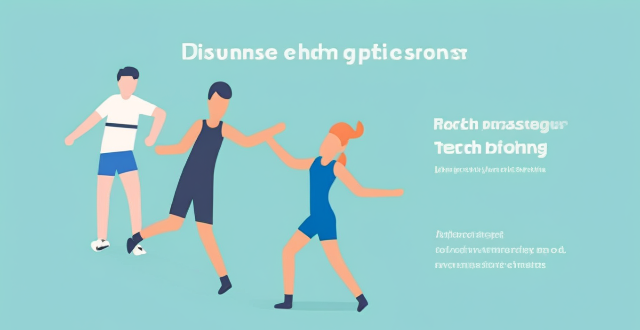
What techniques and strategies are commonly used in sport psychology counseling ?
The text discusses techniques and strategies in sport psychology counseling, which include goal setting, visualization and imagery, self-talk and affirmations, mindfulness and meditation, and breathing techniques. Goal setting helps athletes stay motivated and focused, while visualization and imagery build confidence and reduce anxiety. Self-talk and affirmations enhance self-confidence and motivation, while mindfulness and meditation improve mental clarity and resilience under pressure. Breathing techniques manage stress, anxiety, and tension. Incorporating these methods into training and competition preparation can help athletes achieve their full potential.

How can sport psychology counseling help athletes improve their performance ?
Sport psychology counseling is a specialized field that focuses on the mental and emotional aspects of athletic performance. It aims to enhance an athlete's mindset, motivation, and overall well-being to improve their sporting outcomes. Here's how it can be beneficial: Goal Setting and Motivation: Sport psychologists help athletes set Specific, Measurable, Achievable, Relevant, and Time-bound goals. This clarity in objectives boosts motivation and directs efforts toward improvement. Confidence and Self-Esteem Building: Coaching athletes to replace negative self-talk with positive affirmations enhances their confidence and self-belief. Anxiety and Stress Management: Techniques like deep breathing, progressive muscle relaxation, and mindfulness can reduce anxiety levels before and during competitions. Focus and Concentration: Improving an athlete's ability to focus on relevant cues and block out distractions is crucial for peak performance. Team Dynamics and Interpersonal Skills: Enhancing communication within teams fosters better cooperation and understanding among athletes. Mental Toughness and Resilience: By preparing mentally for setbacks, athletes learn resilience and are better equipped to handle difficulties when they arise. Recovery and Balance: Adequate rest is essential for physical recovery and maintaining mental sharpness. Sport psychologists can guide effective strategies. Helping athletes achieve a balance between their sport and personal lives prevents burnout and keeps them motivated.

What are some examples of successful educational equity programs ?
Educational equity programs aim to provide equal opportunities for all students, regardless of their background or circumstances. Some successful examples include Title I, Early Head Start, Upward Bound, and TRIO Programs. These programs focus on addressing disparities in education by offering additional resources, support services, and professional development for teachers and students. Key features of these programs include funding based on need, comprehensive early childhood education services, academic support, mentoring, and financial aid counseling. Overall, these programs work towards creating a level playing field for all learners and promoting academic success and college readiness.

How do sports psychologists assist coaches in understanding and managing their athletes' mental health ?
Sports psychologists assist coaches in managing athletes' mental health by providing education, individual assessments, mental skills training, counseling, team building activities, crisis intervention, and feedback. This support helps coaches create a supportive environment for athletes to perform at their best mentally and physically.
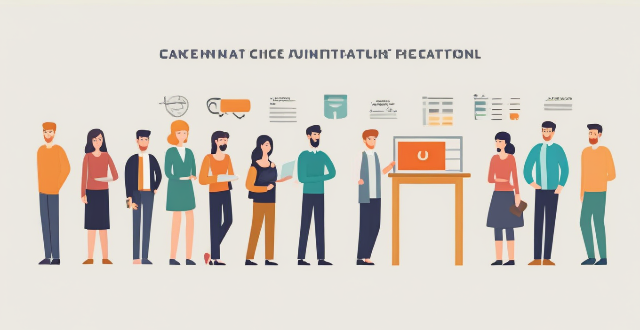
How can universities improve their support services for international students ?
Universities can enhance support for international students by offering cultural orientation, language training, academic tutoring, writing assistance, social integration activities, career development, and internship opportunities.

What are the benefits of sports medicine support for athletes ?
Sports medicine is a specialized field that focuses on the prevention, diagnosis, and treatment of injuries and illnesses related to physical activity and sports. Athletes can benefit from sports medicine support in numerous ways, including injury prevention, timely diagnosis and treatment, performance enhancement, and long-term health management. Sports medicine professionals provide assessments of risk factors, customized conditioning programs, guidance on proper technique, equipment advice, rapid intervention, specialized care, rehabilitation plans, nutritional counseling, mental health support, performance analysis, chronic condition management, career longevity, and lifestyle education. This specialized care allows athletes to reach their full potential while minimizing the risks associated with high-level competition and training.
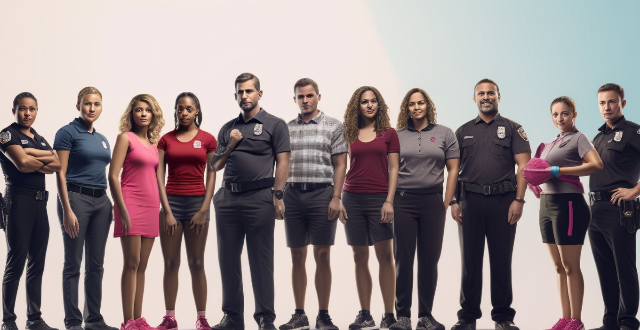
Are there any specific challenges faced by transgender athletes in sports, and how can these be addressed ?
Transgender athletes face unique challenges in sports, includingTransgender athletes face unique challenges in sports, including lack of inclusive policies To address these issues, education and awareness campaigns are needed to promote understanding and acceptance. Inclusive policies and guidelines should be developed to protect the rights of transgender athletes and ensure fair competition. A supportive environment with accessible facilities and resources is crucial for their well-being. Mental health support services tailored to their needs can help them cope with the stress and pressure of being a transgender athlete.

How can schools best support students with special education needs ?
Schools can best support students with special education needs by implementing individualized education programs, fostering inclusive classrooms, encouraging collaborative teamwork, providing differentiated instruction, offering accessible learning materials, and adopting positive behavioral interventions and supports.

What strategies are most effective for managing injuries and ensuring quick recovery in high-performance athletes ?
High-performance athletes face a significant risk of injuries due to the intense physical demands they place on their bodies. Proper management of these injuries is crucial for a quick and successful recovery. Effective strategies for managing injuries and ensuring quick recovery in high-performance athletes include immediate action through the RICE method and medical assessment, rehabilitation programs involving physical therapy, gradual return to training, and nutritional support, mental health support through counseling services and visualization techniques, and prevention strategies such as proper warm-up and cool-down routines, cross-training, and equipment checks. By following these strategies, athletes can maximize their chances of returning to peak performance levels quickly and safely.

How can we protect children from the adverse effects of climate change ?
Climate change poses significant threats to children's well-being, affecting their health, education, nutrition, and mental health. To protect them, we can focus on education and awareness, health protection, nutrition and food security, mental health support, and infrastructure and urban planning. This includes integrating climate change education into school curriculums, engaging communities in workshops, ensuring safe housing and air quality, improving healthcare accessibility and vaccination programs, establishing school gardens and supporting local farmers, providing counseling services and community support networks, and developing resilient infrastructure and safe public spaces.
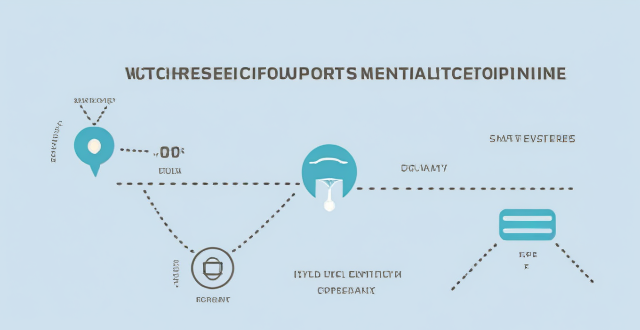
Can existing devices support 5G network ?
This article discusses whether existing devices can support 5G network and what factors influence this compatibility. The most important factor determining whether a device can support 5G is its hardware, including the modem, antenna, and other components required for 5G connectivity. Another factor that can affect compatibility is the software on your device, such as an outdated operating system or lack of necessary drivers and firmware updates. Finally, even if your device has the necessary hardware and software, you still need to have a carrier that supports 5G in your area. To check if your device is compatible with 5G, you can check your device's specifications, ensure that it is running the latest operating system and has all necessary drivers and firmware updates installed, contact your carrier to see if they offer 5G service in your area and if your plan includes access to this network, and consult with a professional or contact the manufacturer for assistance.

What resources are available for women looking to start their own business ?
Starting a business can be challenging, but women can turn their entrepreneurial dreams into reality with the right resources and support. Government programs and grants, non-profit organizations and foundations, online platforms and networks, and educational resources are all available to help women start their own businesses. These resources provide funding opportunities, training programs, networking events, specialized programs for minority and immigrant women, counseling and mentorship opportunities, access to free resources and workshops, and more. By utilizing these resources, women can gain the knowledge, skills, and support needed to successfully start and grow their own businesses.

What types of infrastructure are needed to support widespread use of electric vehicles ?
The widespread adoption of electric vehicles necessitates the development and expansion of various types of infrastructure to support their charging needs, including public and residential charging stations, energy infrastructure, information systems, maintenance and support services, and urban planning and design.

Can the new iPhone model support dual SIM cards ?
The latest iPhone models support dual SIM cards, offering users more flexibility and convenience when managing their calls and messages. Key features of dual SIM support include dual standby, data switching, international travel, and separate work and personal numbers. To set up dual SIM on your iPhone, insert two Nano-SIM cards, enable dual SIM support in settings, choose a default line, assign labels to each SIM card, and manage data plans accordingly.